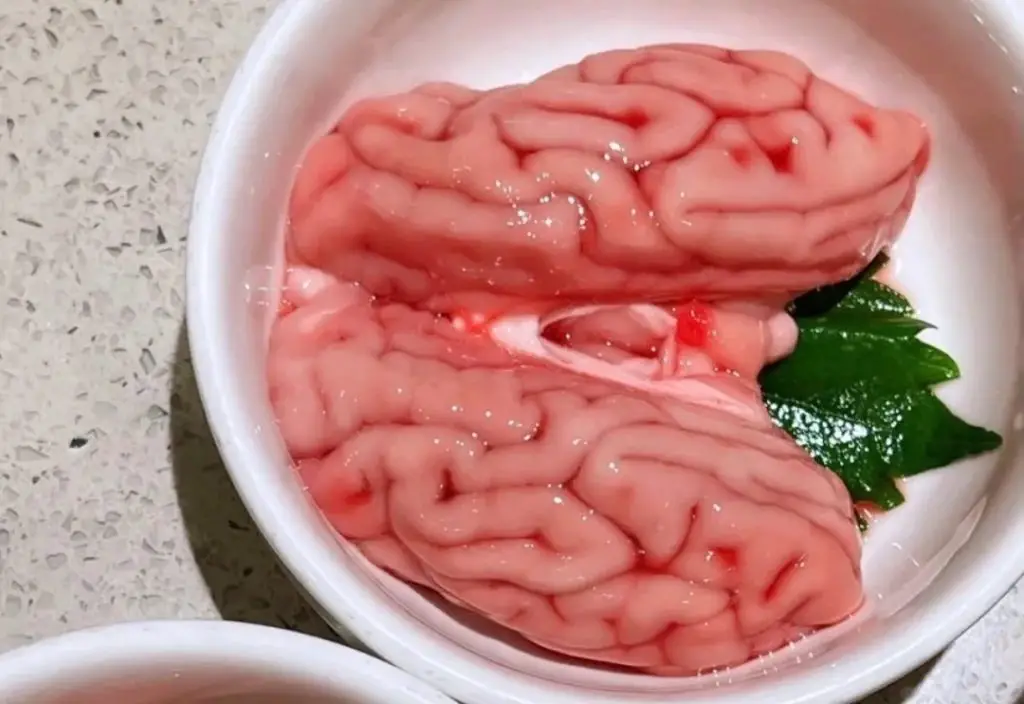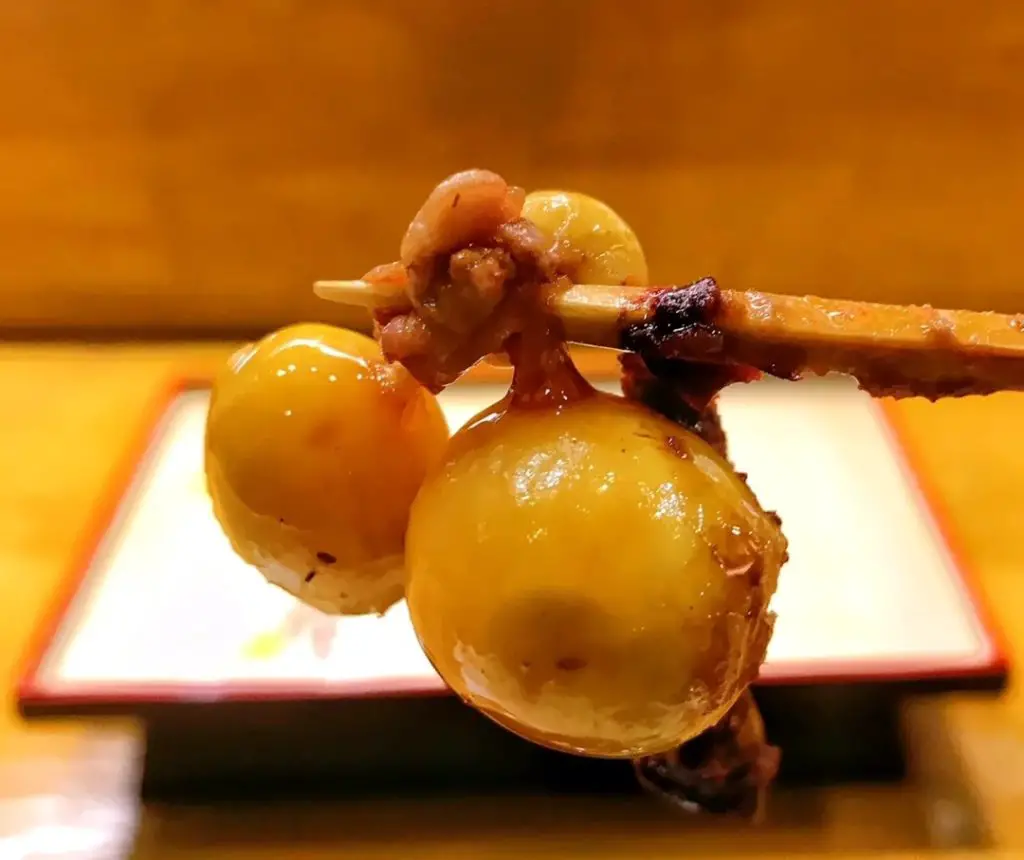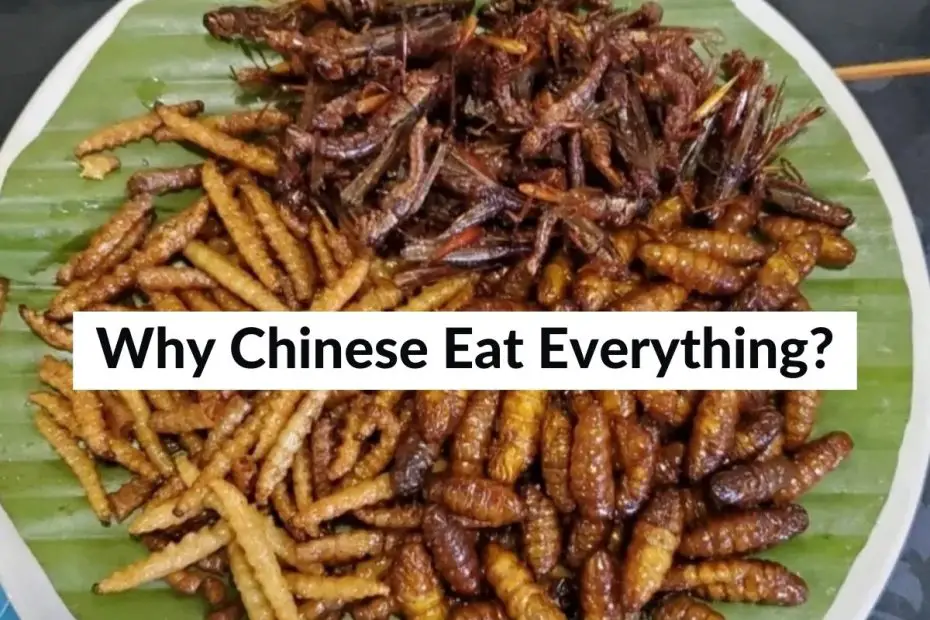Chinese cuisine is renowned worldwide for its diversity and complexity, but it’s also often associated with a practice that some find shocking: the consumption of almost any type of animal or plant matter.
From insects to offal, from rare herbs to exotic fruits, the Chinese culinary tradition seems to know no limits.
However, this is not merely a matter of taste or curiosity.
It’s deeply rooted in the culture and history of China.
1. Historical Factors that Influence Chinese Eating Habits
Throughout Chinese history, there have been periods of scarcity and famine, leading to people developing innovative and resourceful ways to use ingredients.

For instance, the Chinese have been known to eat almost every part of an animal, including organs, bones, and cartilage, as a means of making the most out of their food sources.
One controversial topic is the consumption of dogs in China.
2. Influence of Traditional Chinese Medicine on Chinese Eating Habits

Traditional Chinese medicine (TCM) is a system of medicine that has been practiced for thousands of years in China.
It emphasizes the balance of yin and yang, the importance of Qi, and the use of natural ingredients to treat ailments.
Chinese cuisine is heavily influenced by TCM, with many ingredients and dishes believed to have medicinal properties.
For instance, ingredients like ginseng, goji berries, and Chinese dates are commonly used in Chinese cuisine for their perceived health benefits.
3. Long History of the Country

Another factor that has contributed to the diversity of Chinese cuisine is the long history of the country, which has seen the rise and fall of many dynasties and the interaction of various ethnic groups.
Each dynasty and ethnic group has brought its own culinary traditions and ingredients, resulting in a rich tapestry of flavors and textures.
4.China is Home to One of the Most Biodiverse Ecosystems on Earth
While beef, pork, and chicken are the most common meats consumed globally today, historically, people ate whatever protein was available to them.
For example, Guinea pigs have been a staple in Peru’s Andean diet for around 5,000 years and remain a common source of protein there.
In the American South, alligator meat is still enjoyed by many.
Similarly, before industrial farming and globalization, Chinese people ate whatever plants and animals were accessible to them, and with nearly 10% of all plant species and 14% of all animal species found in China, they had a much larger selection to choose from.
5. No Specific Dietary Restrictions Based On Religious Beliefs


In China, the majority of individuals, around 90%, do not follow any religion and as a result, there are no specific dietary restrictions based on religious beliefs.
Unlike other religions such as Islam, Judaism, Hinduism, and certain branches of Buddhism that have dietary guidelines, China’s society as a whole doesn’t enforce any taboos on the consumption of certain foods.
In 1978, the Chinese Communist government began to liberalize the economy and allowed private companies to establish industrial farms.
6. Government Encourage the Domestication and Breeding of Wildlife

As a result, producers of beef, pork, and chicken began to catch and raise wild animals, while small farmers started backyard operations to breed animals like snakes and turtles.
The government supported this burgeoning wildlife industry as a way to feed people in rural areas, enacting a law in 1988 to encourage the domestication and breeding of wildlife for various purposes, including food.
However, in recent years, as China has become wealthier, the government has cracked down on wildlife consumption.
A 2016 revision to the law specifically encouraged domestication and breeding for scientific research and preservation.
Despite this, the wildlife farming industry was already booming, employing millions of people and feeding millions more.
Up until this point, you may have believed the rumor about bats being eaten as the cause for the spread of COVID-19 in China.
However, this is not true as Chinese people do not consume bats. If you plan on visiting the places in Wuhan where the pandemic originated, you will need this Guide.😊Fact:
Nonetheless, the consumption of wildlife is not widespread in China.
According to a survey conducted by a wildlife conservation agency in China, less than 1% of respondents said they would continue to eat wild animals.
Most Chinese prefer to consume chicken, beef, and pork, which make up nearly 90% of livestock production.
Pork, in particular, is the most popular meat in Chinese cuisine, accounting for more than half of livestock.
FAQs:
Does China eat all animals?
No, China does not eat all animals.
Chinese do not eat elephant as an example.
Is there anything Chinese won’t eat?
Yes, there are many foods that are considered taboo and are not consumed.
Dog meat is considered a delicacy in certain places of China, such as Yulin, but it is not a regular part of the Chinese diet.
In fact, most Chinese do not consume dog meat.
And Chinese never eat cockroaches.
Why do Chinese eat insects?
Insects have been a part of Chinese cuisine for centuries and are considered a delicacy in some regions.
They are a rich source of protein and can be found easily in many parts of China.
What does China eat the most?
he most commonly consumed foods in China are rice, noodles, and vegetables.
Meat, such as pork and chicken, is also a popular part of the Chinese diet.
Why Chinese eat snakes?
Eating snakes is a tradition in some parts of China, where they are believed to have medicinal properties.
Snake soup is a popular dish in some regions of China like Hongkong.
Do Chinese eat cockroach?
No, cockroaches are not a part of the traditional Chinese diet and are not consumed.
However, there have been some reports of people in China eating insects as a source of protein.



Im hungry
hairy tofu? 😋